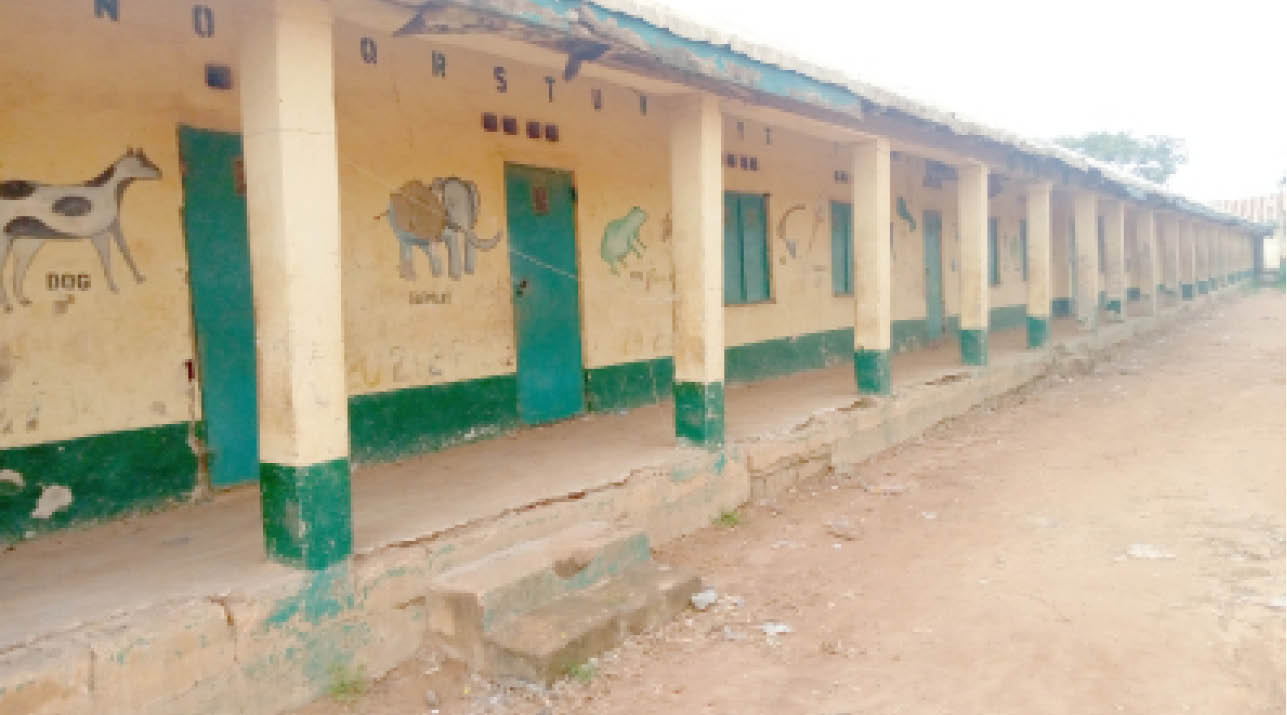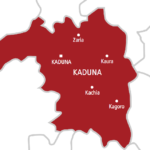Following banditry menace in some parts of the North- West and North-Central, the Kaduna State Government shut down schools in the state. Later, it postponed resumption due to the ongoing military operations against the bandits, all for security reasons. But discordant tunes among experts, parents, educationists and students have continued to trail the development, Daily Trust reports.
The premises of many public schools in Kaduna State have now been taken over by footballers and their fans. They have taken advantage of school closure by the state government to schedule matches on a daily basis. Many clubs commence training from 6:30 am daily and take turns to play their various matches, which in the past only took place during weekends.
Daily Trust gathered that since the Kaduna State Government announced the postponement of school resumption due to the ongoing military operations against bandits in some parts of the North-West and North-Central, youths from different communities now assemble at schools, such as LEA Maiduguri Road; LEA Anguwan Sanusi (1); LEA Chawai Road; LEA Faki Road; Government Junior Secondary School, Kargi Road; LEA Tudun Wada for football matches.
- ActionAid trains youths on agricultural innovation
- Tegina parents doubt commissioner’s release without ransom
Our correspondent observed that despite the state government’s instruction, schools owned by the Nigeria Police Force, such as command schools and those of the Nigeria Air Force have remained active, a development parents and educationists describe as unfair.
Speaking on the development, the chairman, National Association of Proprietors of Private Schools (NAPPS), Kaduna State chapter, Jafaru Yusuf Yuji, called on the government to check any attempt to violate the directive by some private schools, as well as schools owned by the police and military, saying they were “causing a distortion of the state’s education calendar.”

Yuji, who backed the government’s decision to shut down schools during the military operation, said private schools were mostly affected by the activities of bandits, therefore, the association was in support of the government’s action.
“As an association, we have taken a proactive position by advising all our members to adhere to the directive; and we have communicated with the state government to that effect,” he said.
He, however, said the directive on school closure would affect the school calendar because the state would be left behind as the JSCE, WEAC and NECO exams are scheduled to commence soon.
Abdulhaleem Ahmad, a student of Al’itqaan Academy, expressed displeasure that some schools were allowed to flout government instructions while others remained closed.
“I am tired of sitting at home, the school is the only thing that is keeping us busy; we are wasting time at home. Our third term would most likely move into next year while our mates in other states would move ahead of us,” he said.
Daily Trust reports that schools in Kaduna had earlier been scheduled to resume for the third team session within the first week of August, after the Sallah break. However, the state government’s directive would likely disrupt the calendar, which was to begin on Monday, August 9 to October 15, 2021. Last year, schools were shut down during the COVID-19 lockdown for almost seven months, which distorted the state’s academic calendar.
With increased banditry, mostly in the North-West, many schools in Niger, Zamfara, Katsina and Kaduna states have become soft targets as bandits abduct students and staff in exchange for ransom.
Presently, there are over 100 students of Salihu Tanko Islamic School in Tagina, Niger State, who are still in captivity, more than two months after their abduction. In Kaduna, about 80 students of Bethel Baptist High School have spent more than a month in captivity, with the bandits demanding millions of naira for their release.
Our correspondent learnt that out of frustration, many parents are creating ways to keep their wards busy academically.
Malama Maryama Ahmad said, “We engage them with books to read at home while waiting for the new resumption date.” She also said teachers from her children’s school were engaging students with online assignments, which keeps them busy.
Another mother, Rhoda Obi, commended the state government for their decision, saying it acted based on security advice to ensure that staff and students do not end up in trouble.
She, however, said, “As parents, we feel bad because our children will be left behind when compared to other states that have started another academic season.”
Experts react
Experts in the educational sector have expressed divergent tunes over the closure of schools in Kaduna. While some suggested that schools in the city be allowed to continue, those in crisis-prone areas are of the opinion that academic activities should be suspended.
Abdulmajeed Ismail, an educationist and proprietor, said the closure of schools would greatly affect students’ performance in future, pointing out that it is dangerous to close schools in Kaduna while other schools across the country continue to operate.
“As far as I am concerned, as an educationist, I think the government is killing the education system in this state by allowing bandits to dictate to them when to open or not to open schools. Most of these leaders have their children schooling abroad, only the children of the poor are at home. This means that in the future it will be difficult to get professionals to handle the affairs of this country among the children of the poor,” he said.
He, however, said online classes had been activated to keep the students busy, even though psychologically, the school environment helps the children.
He urged the state government to relocate schools from high-security risk communities to safer areas while schools within the metropolis and local government areas free of banditry should be allowed to operate.
Another proprietor at Tudun Wada, Mr Abdulganeeyu Abdulrahman Giwa, said he had no objection with the state government’s reason to close the schools, adding that every government has the mandate to secure the lives and property of the people, including students and teachers, as well as school structures in various villages.

 Join Daily Trust WhatsApp Community For Quick Access To News and Happenings Around You.
Join Daily Trust WhatsApp Community For Quick Access To News and Happenings Around You.

